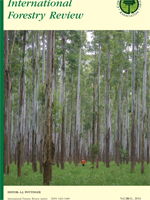While gender issues are becoming increasingly integrated in international environment and development policies, the simplistic manner in which they are treated holds scant promise for real change. In the Reducing Emissions from Deforestation and Forest Degradation (REDD ) program in Burkina Faso, women are targeted in projects promoting non-timber forest product commercialisation aimed to incentivise forest conservation. Such policies are often based on essentialist assumptions about what men and women do, ignoring that social relations of inequality need to be understood in context. Drawing on intersectional theory this study analyses REDD documents, and data about resource use in two villages in Burkina Faso, showing how the participatory approach in Burkina's REDD program is unlikely to encourage currently marginalised voices to be heard in existing forest management organisations. Rather, the lack of acknowledgement of intersecting relations of inequality leads to crucial aspects of NTFP resource use being overlooked, and risks leading to increased marginalisation of certain groups.
How to translate text using browser tools
1 December 2016
Fruits from the Forest and the Fields: Forest Conservation Policies and Intersecting Social Inequalities in Burkina Faso's REDD Program
L. Westholm
ACCESS THE FULL ARTICLE

International Forestry Review
Vol. 18 • No. 4
December 2016
Vol. 18 • No. 4
December 2016
climate policy
environmental governance
gender
intersectionality
NTFP




